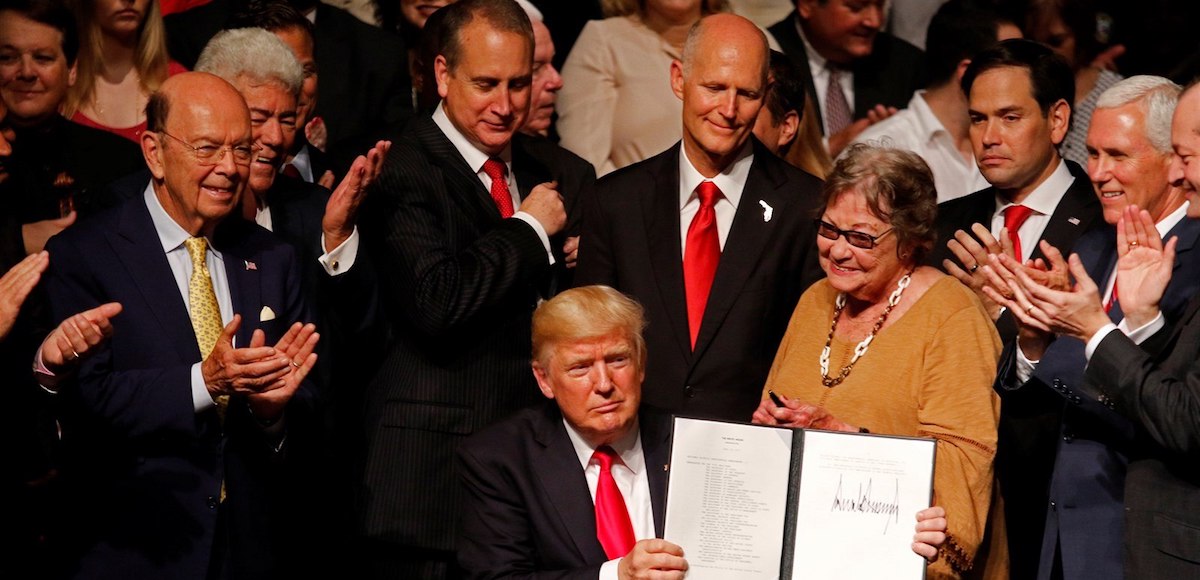

President Donald Trump on Friday ordered tighter restrictions on Americans traveling to Cuba and a clampdown on U.S. business dealings with the Castro regime. (Photo: Reuters)
President Donald J. Trump on Friday in Miami, Florida announced his new Cuba policy, which reverses much of the Obama era easing of travel and trade. He was warmly received by Cuban-Americans and the symbolic importance of the policy wasn’t lost on those in attendance at the event.
While it is fair to say the move marked a major campaign promise kept to the Cuban-American population in the nation’s largest battleground state, it also fair to say it doesn’t rollback everything the previous administration did.
“You can’t put the genie back in the bottle 100 percent,” a senior administration official conceded Thursday.
But there are significant changes made that prevent the Castro regime from enriching themselves through concessions given by the Obama administration’s concessions and restrictions to dealings that benefit the regime and its military.
“Our new policy begins with strictly enforcing U.S. law. We will not lift sanctions on the Cuban regime until all political prisoners are free, all political parties are legalized and free and supervised elections are scheduled,” the President said. “We challenge Cuba to come to the table for a new agreement that is in the best interest of their people and our people, including Cuban-Americans.”
One of the most important changes deals with transactions with the Business Administration Group, S.A — GAESA — which will now be prohibited. GAESA is the company of the Cuban Armed Forces that controls 60% of the Cuban economy, or as the Trump Administration put it “virtually every profitable sector of the economy.”
Here’s what the White House says it will do.
President Donald J. Trump is changing the policy of the United States toward Cuba to achieve four objectives:
Summary of Key Policy Changes:
The most damning journalistic sin committed by the media during the era of Russia collusion…
The first ecological study finds mask mandates were not effective at slowing the spread of…
On "What Are the Odds?" Monday, Robert Barnes and Rich Baris note how big tech…
On "What Are the Odds?" Monday, Robert Barnes and Rich Baris discuss why America First…
Personal income fell $1,516.6 billion (7.1%) in February, roughly the consensus forecast, while consumer spending…
Research finds those previously infected by or vaccinated against SARS-CoV-2 are not at risk of…
This website uses cookies.